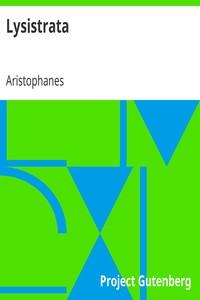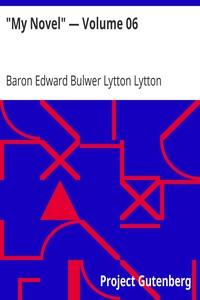Read this ebook for free! No credit card needed, absolutely nothing to pay.
Words: 16508 in 24 pages
This is an ebook sharing website. You can read the uploaded ebooks for free here. No credit cards needed, nothing to pay. If you want to own a digital copy of the ebook, or want to read offline with your favorite ebook-reader, then you can choose to buy and download the ebook.


: Lysistrata by Aristophanes BCE BCE Lindsay Norman Illustrator Lindsay Jack Translator - Comedies; Greek drama (Comedy) Translations into English; Lysistrata (Fictitious character) Drama; Peace movements Drama; Women and peace Drama; Greece History Peloponn
Commentator: Jack Lindsay
Illustrator: Norman Lindsay
LYSISTRATA
ARISTOPHANES
FOREWORD
I amuse myself at times with the fancy that Homer, Sappho, and Aristophanes are the inviolable Trinity of poetry, even to the extent of being reducible to One. For the fiery and lucid directness of Sappho, if her note of personal lyricism is abstracted, is seen to be an element of Homer, as is the profoundly balanced humour of Aristophanes, at once tenderly human and cruelly hard, as of a god to whom all sympathies and tolerances are known, but who is invulnerable somewhere, who sees from a point in space where the pressure of earth's fear and pain, and so its pity, is lifted. It is here that the Shakespearean and Homeric worlds impinge and merge, not to be separated by any academic classifications. They meet in this sensitivity equally involved and aloof, sympathetic and arrogant, suffering and joyous; and in this relation we see Aristophanes as the forerunner of Shakespeare, his only one. We see also that the whole present aesthetic of earth is based in Homer. We live and grow in the world of consciousness bequeathed to us by him; and if we grow beyond it through deeper Shakespearean ardours, it is because those beyond are rooted in the broad basis of the Homeric imagination. To shift that basis is to find the marshes of primitive night and fear alone beneath the feet: Christianity.
How could the humanistic emotions, such as pity, justice, sympathy, exist save as pacifistic quietings of the desire to slay, to hurt, to torment. Where the desire to hurt is gone pity ceases to be a significant, a central emotion. It must of course continue to exist, but it is displaced in the spiritual hierarchy; and all that moves courageously, desirously, and vitally into the action of life takes on a deeper and subtler intention. Lust, then, which on the lower plane was something to be very frightened of, becomes a symbol of the highest spirituality. It is right for Paul to be terrified of sex and so to hate it, because he has so freshly escaped a bestial condition of life that it threatens to plunge him back if he listens to one whisper But it is also right for a Shakespeare to suck every drop of desire from life, for he is building into a higher condition, one self-willed, self-responsible, the discipline of which comes from joy, not fear.
Consciously, no one can achieve the act of love on earth as a completed thing of grace, with whatever delirium of delight, with whatever ingenious preciosity, we go through its process. Only as an image of beauty mated in some strange hermaphroditic ecstasy is that possible. I mean only as a dream projected into a hypothetical, a real heaven. But on earth we cannot complete the cycle in consciousness that would give us the freedom of an image in which two identities mysteriously realize their separate unities by the absorption of a third thing, the constructive rhythm of a work of art. It is thus that Tristan and Isolde become wholly distinct individuals, yet wholly submerged in the unity that is Wagner; and so reconcile life's duality by balancing its opposing laughters in a definite form--thereby sending out into life a profounder duality than existed before. A Platonic equipoise, Nietzsche's Eternal Recurrence--the only real philosophic problem, therefore one of which these two philosophers alone are aware.
But Panurge is as fantastic and fascinating a character now as he was 300 years ago, Lysistrata and her girls as freshly bodied as any girl kissed to-day. Therefore the serious part of the play is that which deals with them, the frivolous part that in which Rogers detects gravity and earnestness.
Aristophanes is the lord of all who take life as a gay adventure, who defy all efforts to turn life into a social, economic, or moral abstraction. Is it therefore just that the critics who, by some dark instinct, unerringly pick out the exact opposite of any creator's real virtues as his chief characteristics, should praise him as an idealistic reformer? An "ideal" state of society was the last thing Aristophanes desired. He wished, certainly, to eliminate inhumanities and baseness; but only that there might be free play for laughter, for individual happiness.
Consequently the critics lay the emphasis on the effort to cleanse society, not the method of laughter. Aristophanes wished to destroy Cleon because that demagogue failed to realize the poet's conception of dignified government and tended to upset the stability of Hellas. But it was the stability of life, the vindication of all individual freedoms, in which he was ultimately interested.
JACK LINDSAY.
Free books android app tbrJar TBR JAR Read Free books online gutenberg
More posts by @FreeBooks









